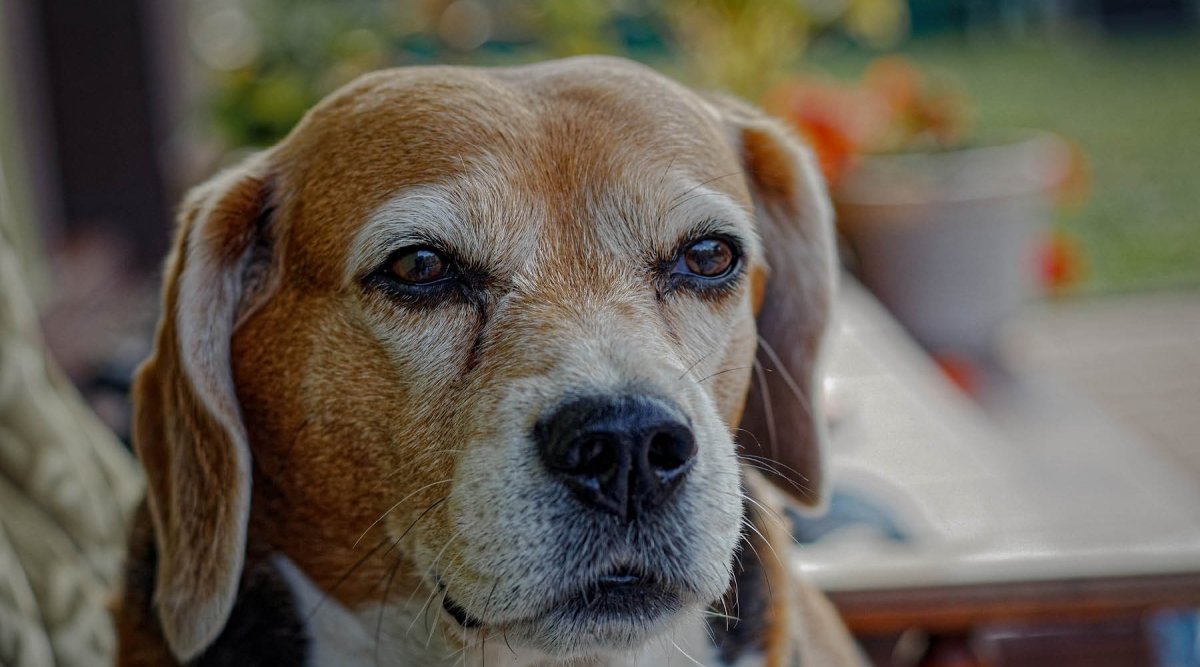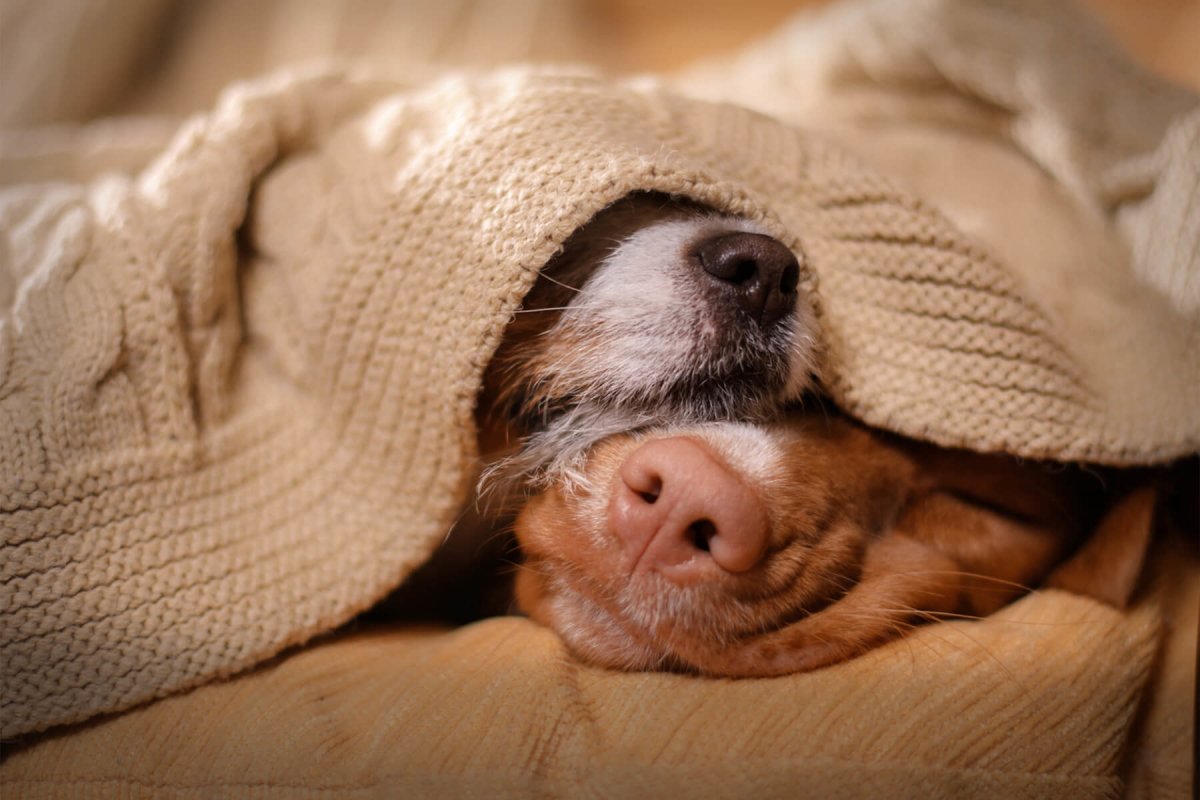Are you looking for a small dog breed that is well tolerated, suitable as a first dog and also loves children? Then the Shih Tzu is just the right animal companion for you. Find out everything you need to know about the Shih Tzu dog breed in our breed portrait.
Shih Tzu origin and history
The Shih Tzu is a cross between a Pekingese and a Lhasa Apso and originally comes from Tibet. These dogs were particularly popular at the Tibetan court and later at the Chinese court. At the beginning of the 20th century, the breed also spread to Europe and the USA through travelers. While the Shih Tzu hardly exists in China and Tibet any more, it is a popular family and companion dog here.
What does a Shih Tzu look like?
The Shih Tzu reaches a height of up to 27 cm and its body weight varies from 4.5 to 7 kg. Compared to other miniature dogs, the stature of the Shih Tzu is somewhat more robust. However, the four-legged friend tends to become overweight quickly and should therefore be fed according to its breed. Shih Tzu food should contain mainly meat and be supplemented with fresh fruit and vegetables. Due to its tendency to become overweight, we recommend choosing lean meat for Shih Tzu food.
The Shih Tzu's tail curved over its back and the top knot on its head are particularly striking. As these dogs have very long hair, it is usually tied into a plait on the top of the head and rarely shortened. However, their long facial hair should be trimmed regularly, otherwise the small dog will have problems eating.
Due to its chin and whiskers and its square muzzle, many see the small Shih Tzu as resembling the king of beasts, the lion.
The Shih Tzu has big googly eyes that you can't refuse. Its eyes also clearly show when the dog in need of attention dislikes something.
The Shih Tzu is now available in all possible dog colors, its coat is particularly long and has a very dense undercoat. It should be groomed regularly.
Shih Tzu character and nature
The Shih Tzu character is similar to that of other small dogs. It is quite relaxed and not snappy. The Shih Tzu does not tend to bark or be aggressive. However, it is a very lively dog that is not difficult to train. It is therefore suitable as a first dog, for inexperienced dogs and also for owners who do not want to invest a lot of energy in training their dog.
Furthermore, the Shih Tzu is intelligent, friendly, attentive but also likes to be independent. He is able to get involved with his family and likes to follow them wherever they go. It also needs a lot of attention from its caregivers, otherwise it can sometimes be snappy. The breed also gets on well with children and is happy to receive a lot of affection. Shih Tzus do not like cold or damp and like to be warm and cuddly.
Shih Tzu care and keeping
Despite their long and thick coat, these dogs shed little or not at all. However, the coat requires considerably more grooming than shorthair breeds and should be brushed daily. The Shih Tzu can also be bathed so that it does not become matted and dirt and grime accumulate in the long coat and possibly cause disease. However, the shampoo must be suitable for this breed. The dog shampoo should make it easier to comb and ensure a shiny coat. For particularly sensitive dogs that are prone to itching and intolerances, we recommend an aloe vera-based sensitive shampoo. If your dog doesn't like being showered or is very tense and seems stressed, you can try the new furly dog shower. With its three different jet types and extra-long nubs for a relaxing massage effect, this shower head has been specially developed for dogs that won't stand still in the shower.
There is a simple trick to keep your Shih-Tzu's coat supple and vital: add half a teaspoon of coconut oil for dogs to their daily food. After 1-2 weeks, the food supplement should be noticeable and your pet's coat should be soft and shiny. Coconut oil also stimulates the energy metabolism and the immune system. This even supports the health of your Shih Tzu.
Keeping Shih Tzus does not require any special circumstances either. These dogs do not need much exercise because they only have a moderate urge to move. The Shih Tzu is also completely happy with short walks. It can be kept well in a city apartment as well as in the countryside with a large garden.
The Shih Tzu is not only good with children and other dogs, it also quickly gets used to other pets. The small dog has no hunting instinct and is not a good herding dog.
Shih-Tzu diseases - prevent in good time
This dog breed has an average life expectancy of 12 - 15 years. Although this dog is a fairly robust and fit contemporary, there are still diseases that are predestined for this breed. The four-legged friends are susceptible to eye diseases and respiratory diseases. The latter is mainly due to the flat, depressed nose. For this reason, the Shih Tzu breed standard expressly states that narrow nostrils are undesirable. Narrow nostrils are generally considered a fault in any breed, as they restrict the dog's breathing and prevent sufficient air from reaching the lungs.
Joint diseases are also common in the Shih Tzu. As with many other small dog breeds, the kneecap can dislocate (patellar luxation).
Green-lipped mussel powder for dogs should be fed in combination with rose hip powder to strengthen the joints of the small four-legged friend at an early stage. The glycosaminoglycans it contains in combination with galactolipids from the rose hip help to keep the joints healthy and can also be fed to dogs with osteoarthritis and breed-specific joint diseases.
Conclusion
The Shih Tzu is one of the small dog breeds and originally comes from Tibet. The small four-legged friend is well tolerated and is suitable for people with or without dog experience. It gets on well with children and other pets and does not make high demands on its owner.
Shih Tzus are very robust, but are prone to some illnesses, which depend on their breeding on the one hand and can be attributed to their small size on the other.



